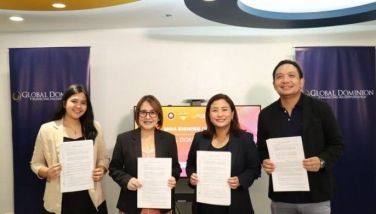Save water, save lives

Our country has an abundant supply of water, mostly untapped though. We have not fully employed available engineering and technological solutions to harness what nature provides us during the annual rainy season. Sadly, a part of what’s available in our water supply system is wasted. And worst, contamination persists in some areas.
I have discussed in my previous column that at least 24 million Filipinos lack access to improved water treatment and sanitation. At this modern age and time, it is mind boggling why around 20 percent of our countrymen still suffer from this deprivation. According to the World Health Organization (WHO) report in 2016, we needlessly lost 139,000 lives from “acute watery diarrhea,” which is considered among the top ten causes of death in the country. Presumably, these victims ingested unsafe water from our pipes and other improvised sources.
Ironical consequence. We lack potable water. Yet, our archipelago is completely surrounded by water. And perennially, we are beset with heavy rains that at times fall in torrential proportions. Floods are almost expected already, and no city is exempted from these. We’re practically resigned to this fate of merely surviving the onslaught of tropical cyclones. But I’m sure most of us are deeply puzzled with the possibility that drinking water will be rationed soon, and that parts of our agricultural lands will dry up.
It’s all over the news. The El Niño phenomenon causes less precipitation which consequently lowers the amount of rainfall compared to normal weather conditions. It also significantly increases the temperature in the Pacific Ocean and the general level of heat that we can experience. Then when typhoons occur, they are stronger and more devastating.
As advised by our government, we must brace and prepare for the detrimental impact of El Niño. Again, the backdrop is, our country has an almost endless access to water.
Remiss in social and corporate responsibility. We must seriously assess the property development sector. For the last decade, hundreds of new subdivisions and condominiums were built. Thousands of additional residents migrated to the densely populated metropolis of Metro Manila, Cebu, Baguio and other urban centers. The corresponding challenging impact on water supply has to be factored in, beginning with the permits required prior to selling and construction. Take note, we shall not account only for drinking water. The same potable water is used for gardening, washing cars and dishes, general cleaning of housing units and flushing of toilets!
The main culprits in contaminating our primary source of water are the residential, commercial and industrial establishments that don’t have their own sewage treatment plants (STPs). Meaning, they directly dislodge chemical, biological and other forms of wastes that will destroy our surface and underground sources. Our local government units and national agencies, hopefully, must strictly enforce compliance with environmental ordinances which oblige owners of establishments to invest in their own or shared STPs. The Laguna Lake Development Authority (LLDA), for example, has the authority to make this. Why? All establishments that directly and indirectly release untreated wastes through the river and water tributaries towards Laguna de Bay can be held accountable by this special agency.
My long-time friend, Aristeo “Putch” Puyat, passionately engages me with several issues of national concern. Sustainable water supply is one of his patriotic concerns. We have agreed to have this as one of our major advocacies.
Engineering interventions will be the way forward. Catch basins, additional dams and new canals must be constructed strategically to control funds and, more importantly, to use the huge volume of water for our growing drinking and sanitation requirement, irrigation and electricity demand.
The National Irrigation Administration (NIA) is at the forefront of converting our idle agricultural lands into a robust additional rice granary and producer of other high value crops. I’m confident that my friend, NIA administrator Ed Guillen, will competently pursue a science-based program that will deliver the urgent rescue and long-term mission to increase the productivity of our farms and achieve resilience against the perennial calamities that challenge our basic agricultural sector.
We need a comprehensive thesis to provide the needed framework that will address our creeping water crisis. This challenge is complex, and it entails financial resources that are not immediately available to an economy like ours.
But the collective recognition that we have to start rolling the sustainable programs towards stabilizing our water supply is a good start. Political will in the national and local levels of government, and the consistent cooperation of our citizens and corporate establishments, will be essential to overcome this water crisis.
- Latest
- Trending





























